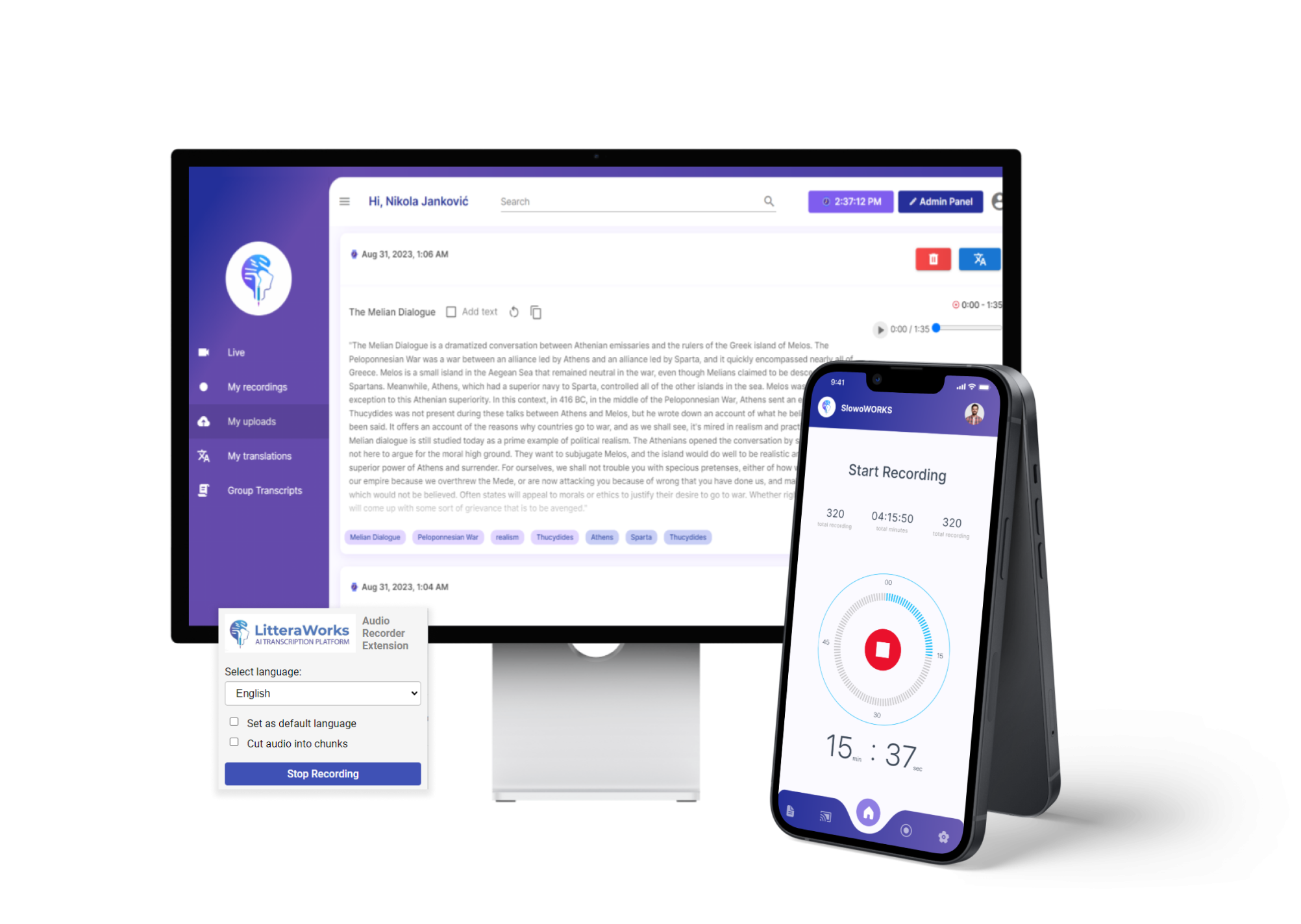
Creating subtitles on the fly: Extending your media reach
In the evolving world of media, the demands for accessible, versatile, and globally resonant content have never been higher.
Gone are the days when an engaging storyline or riveting journalism was enough to capture an audience's attention. Today, viewers and readers come from all corners of the globe, and increasingly, they expect— no, require—content that speaks to them in more ways than one. And subtitles are one of the most efficient ways to meet these heightened expectations?
This article is about a change in the media landscape, a progression in technology, and how an AI-driven approach to creating subtitles with platforms like Litteraworks can genuinely serve the media industry. Automated subtitles are not just a convenience but a strategic asset for a diverse range of media needs —from broadcasting networks to the burgeoning realm of YouTubers or podcasters.
Bridging the gap between languages, SEO and multitasking
Subtitles have become an integral aspect of storytelling and information dissemination in a globalized world. The media industry faces unique challenges —speed, accuracy, multi-platform dissemination — all while juggling various linguistic nuances. In such an environment, subtitles serve as a versatile tool for expanding reach and improving engagement. Content is no longer bound by geography, as subtitles are breaking language barriers.
In addition, audiences increasingly multitask, and subtitles offer an alternative modality for consuming content. They are also important for SEO and discoverability. It might not be obvious, but search engines can index subtitles, making your content easier to discover online. At the same time, you can also use transcripts and store them in your database for internal search, or let Google index full transcripts as well.
In 2023, AI and machine learning algorithms have advanced to a point where high-quality translation is a reality. We are not talking about Spanish, English or German only, it works well even for smaller languages. Media professionals can now access automated translations that can be converted to subtitles swiftly, and sentences sound much better than those Google-translated.

The Litteraworks workflow: A Brief overview
Understanding the "how-to" is essential for any tool, but rest assured, the process here is straightforward.
- Upload your media: Simply upload the audio or video file that you wish to transcribe and subtitle.
- Automated transcription and subtitles: Litteraworks' platform uses AI algorithms to automatically transcribe the uploaded media. Within moments, you can download an SRT or VTT subtitle file that's ready to be used. Timecodes are in there, no need to manually create them.
- Multi-language support: Once you have transcription in one language? Generate subtitles in additional languages with just a click, thanks to the platform's real-time translation feature.
- Utilizing SRT and VTT Files: These files can be easily imported into most major video editing software or directly uploaded to platforms like YouTube or Vimeo. They're also useful for archiving and internal use, providing a textual resource for later reference.
- Bonus — Standard transcription: While the focus here is on subtitling, it's worth mentioning that the initial automated transcription can also be downloaded as a standard text file, providing an additional resource for your editorial or archival needs.
Use cases and future trends
Use cases might be obvious - media companies will use tools like this to efficiently transcribe interviews, documentaries and even events, while podcasters can now easily convert their episodes into wide reachable programme for global audiences. Subtitles can help in better engaging a global audience and improving the SEO of your videos. The same goes for educators and their online courses, lectures, or tutorials. Understanding advanced concepts is not always easy for non-native speakers and having subtitles available in their language can increase your reach and their comprehension of the material.
For the future releases of Litteraworks, you can expect automated summaries of your interviews or talks. While long-term content has a lot of appeal, sometimes we are not able to fully consume it - and this trend will surely open it to vast new audiences. We are also working on karaoke-like style of word-timing recognition, speaker recognition and more, all of which will be available in future Litteraworks updates.
A simple first step for you
The media landscape continues to undergo rapid changes, and it's crucial to adapt to stay relevant. While you're pondering the possibilities, why not take a small step? The Litteraworks platform provides a simple and efficient way to get started with subtitling. We will give you a free demo to try the platform and see whether it will suit your needs and how it might help you.
Contact us on info@app-works.app.
